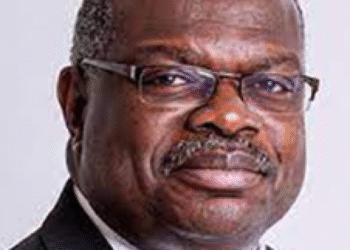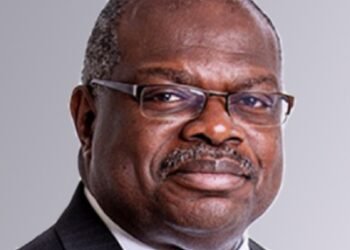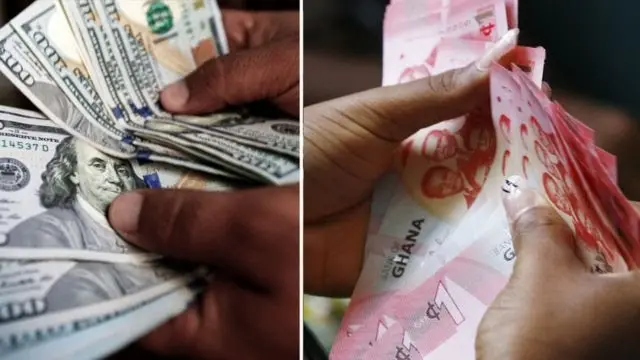The Attorney General and Minister of Justice of Ghana, Godfred Yeboah Dame, has made an urgent call for strengthened global cooperation in the fight against the rising tide of cross-border economic and financial crimes.
Speaking at the 41st Cambridge International Symposium on Economic Crime held at Jesus College, University of Cambridge, Dame emphasized that the survival of the global community hinges on effective collaboration among justice partners worldwide to combat these increasingly complex crimes.
Addressing an audience of top global actors in the fight against economic crime, Dame highlighted the alarming increase in organized financial and economic crimes.
Dame pointed out that the challenge of tracing illicit assets is inherently international and multi-jurisdictional, requiring nuanced approaches that consider the specific contexts of different regions and continents.
“Whilst tracing of assets is largely international and multi-jurisdictional, we must bear in mind the peculiarities of asset tracing and fighting economic crime generally within the context of specific continents and regions.”
Godfred Yeboah Dame, Attorney General and Minister of Justice of Ghana
Dame also discussed the complexities introduced by regional integration, particularly in Africa, where the launch of the Africa Continental Free Trade Area (AfCTA) has created both opportunities and challenges.
“The AfCTA has unleashed a new set of issues for law enforcement, including migratory problems, corruption, money laundering, and environmental challenges,” Dame explained. He stressed the urgent need for increased international cooperation to address these issues effectively.
Highlighting the importance of international conventions in facilitating cross-border cooperation, Dame referenced agreements like the United Nations Convention Against Corruption (UNCAC) and the African Union Convention on Preventing and Combating Corruption.
The Attorney General urged African nations and the broader global community to leverage these frameworks to enhance cooperation in asset recovery and the fight against economic crime.
“Our survival as a global community depends on the efficiency of cooperation among us. The world can develop a proper response to the dangers posed by economic crime only through a coordinated effort based on mutual cooperation between criminal justice partners and the private sector globally.”
Godfred Yeboah Dame, Attorney General and Minister of Justice of Ghana
Attorney General further noted that criminals often exploit differences between countries to further their objectives, enriching their organizations, expanding their networks, and avoiding detection.
To counter this, he called for summits like the Cambridge Symposium to reinforce global cooperation between nations that have had assets stolen and those where the assets are hidden.
“Law enforcement officials on both sides must drive forward to ensure a return of illicit funds to countries from which they originate. There must be free international data sharing to combat cross-border economic crime.”
Godfred Yeboah Dame, Attorney General and Minister of Justice of Ghana
Focus on “Suspect Assets”
The theme of this year’s symposium, “Suspect Assets,” was particularly relevant to Dame’s message. He underscored the importance of asset tracing as a critical tool in the fight against economic and financial crime.
“The motivation for financial and economic crime is often the acquisition of illicit wealth and undue advantage. Effectively tracing assets of suspects and recovering the proceeds of crime nips the motive for such crimes in the bud.”
Godfred Yeboah Dame, Attorney General and Minister of Justice of Ghana
For developing countries like Ghana, he noted, the successful recovery of assets not only serves justice but also provides much-needed revenue for development projects.
Dame warned against the dangers of plea-bargaining in financial and economic crimes when not handled with care. While acknowledging its value, he cautioned that plea agreements should be based on a clear acknowledgment of responsibility for the crimes committed.
He argued that entering plea bargains without such acknowledgment could risk compromising the integrity of the justice system and the reputation of prosecutors.
Turning to domestic efforts in Ghana, Dame highlighted the legislative frameworks in place to combat economic and financial crimes and recover suspect assets. He pointed to three key laws: The Economic and Organised Crimes Office Act, 2011 (Act 804), The Office of the Special Prosecutor Act, 2017 (Act 959), and the Companies Act, 2019 (Act 992).
These laws, he explained, are instrumental in tracing and recovering criminal assets and in promoting transparency within Ghana’s legal and financial systems.
Dame outlined the specific mechanisms within these laws that empower agencies like the Economic and Organised Crimes Office (EOCO) and the Office of the Special Prosecutor (OSP) to pursue asset recovery. These include search and seizure powers, property tracking, and the ability to lift the corporate veil to identify individuals behind illicit activities.
He noted that EOCO’s mandate to investigate tax fraud and prosecute on behalf of the Attorney-General, combined with the OSP’s powers, positions these institutions as key players in the fight against economic crime in Ghana.
The Companies Act, 2019, with its provisions for the verification of information provided by companies and the declaration of beneficial owners, was also highlighted as a critical tool in combating money laundering and corruption.
Dame pointed out that these measures are helping to reduce the creation of shell companies and opaque financial systems that have historically facilitated the concealment of illicit wealth.
Godfred Yeboah Dame’s address at the Cambridge International Symposium on Economic Crime was a clarion call for enhanced global cooperation to tackle the growing menace of cross-border economic and financial crimes.
His remarks underscored the importance of both international and domestic efforts in asset tracing, recovery, and the overall fight against economic crime. As the global community grapples with these challenges, the Attorney General’s insights and proposals offer a roadmap for a more coordinated and effective response.
READ ALSO: Ghana’s Rising Debt Has Direct Ramifications on Ghana’s Capital Market- Analyst























